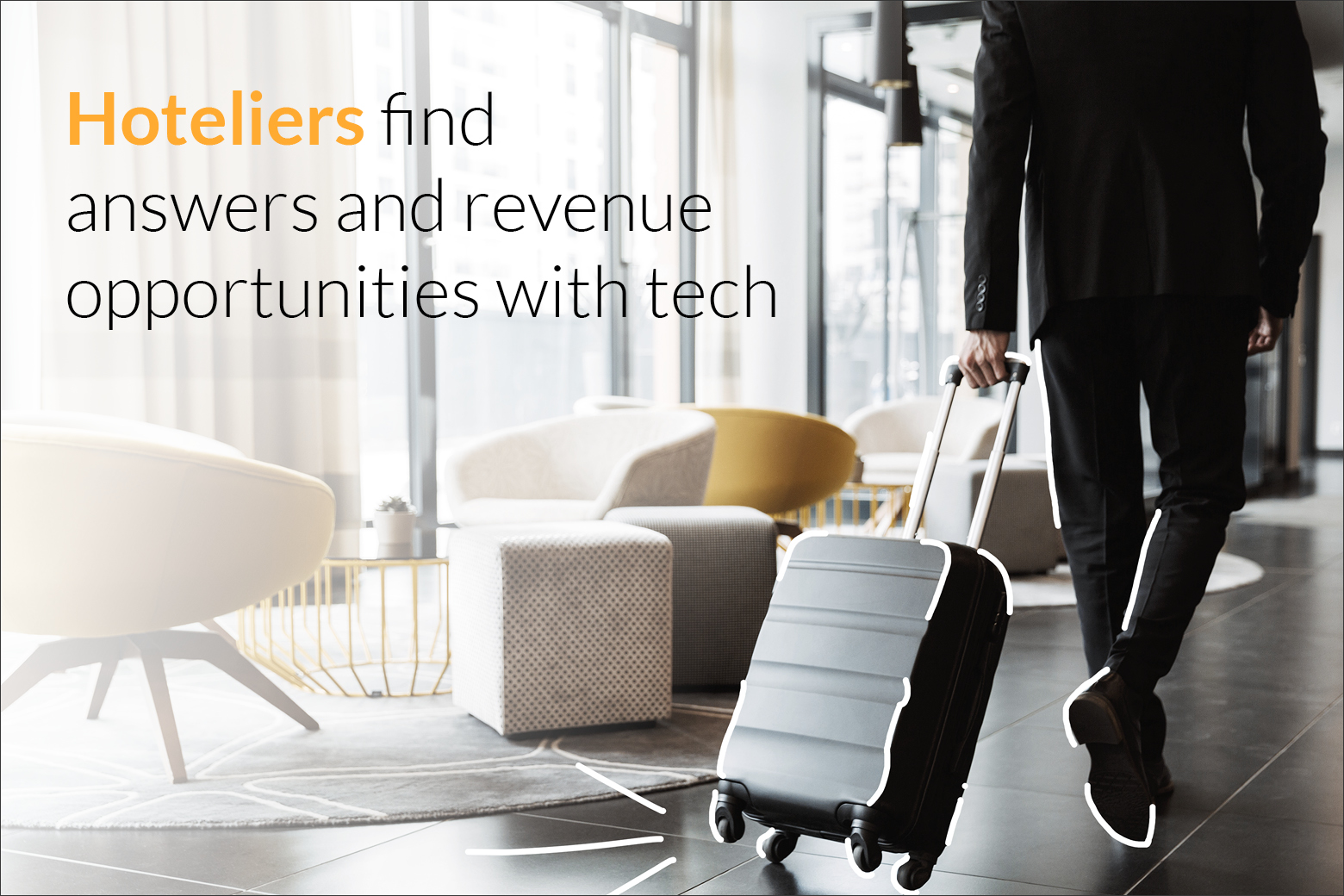The world has experienced some bizarre, and yes, unprecedented times in a short, but monumental, few years.
The hospitality and travel industries, (among the rest of the world) have heard the continuous talk about “the new normal.” But for hoteliers, the only thing proving to be normal is that nearly everything about guest services is new.
Today’s guests want risk-free contingencies, self-service, and contactless support. Meaning hoteliers need innovative ways to manage volume, promptly communicate, and provide exceptional guest experiences, all while facing a labor shortage.
If hoteliers, and the hospitality industry, plan to welcome the volume of group travel then technology will be paramount to not only their survival but also, revenue potential.
Progression in the industry presents major challenges for hoteliers.
The past two years changed the way we think about travel and proved just how special exploration can be.
With summer travel fading, the preparation for the 2022 holiday travel season begins. And according to data, this year has already shown a significant rise in group travel booking rates. Most observers attribute this surge in business to pent-up demand from consumers who have been hunkered down at home or recovering financially.
Alliances between hotels and innovative software are helping to broaden reach, secure bookings and open revenue opportunities without additional staff resources. Hoteliers with the capabilities to collect insight into guest profiles, especially those belonging to a group, are better positioned and equipped to manage the volume of bookings and grow new revenue streams without their usual staff size.
As group travel continues to grow, group sizes are trying to catch up.
The practice of social distancing for such an extended amount of time left certain pandemic-related behaviors lingering in the business of group travel. For instance, the number of events and gatherings has increased while the actual group size has yet to reach pre-pandemic levels.
In 2022, 63% of event RFPs were for groups of 50 people or less (up 5% from 2019), which has created an additional struggle for hoteliers who’ve experienced less time to plan for group accommodations.
However, the largest struggle of all is adapting to the combination of a higher volume of smaller groups and events in less time with reduced staff.
The hospitality industry is currently face-to-face with a labor crisis.
According to the American Hotel & Lodging Association (AHLA), 87% of hotels reported being forced to lay off or furlough staff because of COVID-19.
As of June 2022, only 36% have been unable to bring any of their furloughed or laid-off workers back to full-time employment. Meanwhile, 97% of surveyed respondents said they are experiencing a staffing shortage today.
To meet the demand of travelers, hotels have offered an array of staff incentives, like:
-
- 90% have increased wages
- 71% are offering greater flexibility with hours
- 43% have expanded benefits
Unfortunately, over the past year, hoteliers’ attempts to manage labor shortages were met unsuccessfully and led to unsustainable labor costs without alleviating their workforce crisis.
So how does a hotelier meet their guest’s exceedingly high expectations with fewer employees?
Technology.
If hoteliers plan to welcome the volume of group travel then technology will be paramount to not only their survival but also, revenue potential.
Embracing technology in unprecedented ways provides a solution to labor shortages.
The use of tech is one of the few realistic ways to lessen the negative impact of the current labor shortages and unsustainable labor costs. Not only can software solutions reduce staffing needs by a significant percentage, but it also satisfies today’s tech-savvy guests and augments their experience in planning group travel.
According to the 2022 Hotelier Technology Sentiment Report, the adoption of contactless technology increased by 66% during the pandemic. In the last two years, hotels have continued to spend 31% more on technology.
While the volume of group travel is expected to continue rising, further data reveals that significant changes will persist. This includes the average lead-in time for an RFP, which has already been shortened by 30 days. Hoteliers have combated the issue of shorter timeframes by placing more capabilities into their guests’ hands.
Digital technology for room block management as an example, allows fewer people to manage more. It offers a resolution for accommodating groups in less time by administering live updates on room blocks, reservation changes, and upsell opportunities. With data always available, attrition concerns become more actionable ahead of time.
Having one operating tool that digitizes a process has become the normal guest expectation, but it also offers convenient advantages to hoteliers, employees, planners, and guests alike.
Given the challenges of today, incorporating technology into hotel operations is necessary to minimize human error, maximize efficiency and improve the guest experience.
Not only can software solutions reduce staffing needs, but it also satisfies today’s tech-savvy guests and augments their experience in planning group travel.
Industry technology is a business opportunity to enhance the guest experience.
Five-star service means something different to every customer now, but having the capabilities to individualize each service, for each group, and for every guest, makes the experience personal.
With prompt communication and group-activity tracking, hoteliers can follow the pace of group bookings. These real-time insights help to understand your customers and prepare for ways to personalize their experience. Technology gives a hotelier the opportunity to approach each booking with a plan to customize guest services more than ever before.
Integrated systems allow you to know more about each reservation so you can do more for each guest. Communication and preparation will be key to winning business in the future of group travel with real-time data playing a central role in successfully improving relationships and building positive guest experiences for all the return visits to come.


